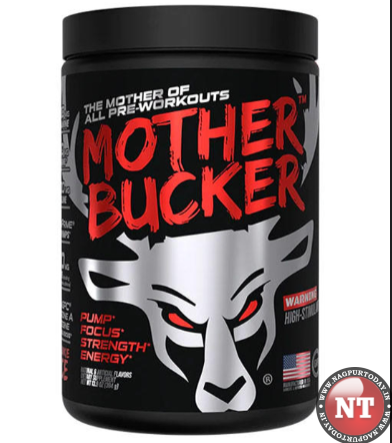
This article delves into the latest breakthroughs in pre-training fuel, exploring the science behind maximizing every repetition. From understanding the fundamental components of pre-training nutrition to uncovering cutting-edge research findings and real-world applications, we embark on a journey to unlock the secrets that can propel us to new heights of physical achievement.
Understanding Pre-Training Fuel
As we embark on the journey to maximize every rep, understanding the essence of pre-training fuel becomes paramount. Pre-training fuel refers to the nutritional intake consumed before engaging in physical exercise. Its purpose is to provide the body with the necessary energy and nutrients required to optimize performance and recovery during workouts. This proactive approach ensures that the body is adequately fueled, enhancing endurance and supporting overall fitness goals.
Different Types of Pre-Training Fuel
The diversity of pre-training fuel lies in the triad of macronutrients: carbohydrates, proteins, and fats. Each plays a unique role in preparing the body for physical exertion.
Carbohydrates:
- Carbs are the body’s primary energy source.
- Incorporating complex carbohydrates, like whole grains and fruits, provides sustained energy for extended workouts.
Proteins:
- Protein aids in muscle repair and growth.
- Opt for lean protein sources like poultry, fish, or plant-based options for a well-rounded pre-training meal.
Fats:
- Healthy fats contribute to sustained energy and support nutrient absorption.
- Include sources such as avocados, nuts, and olive oil in moderation.
Importance of Timing in Pre-Training Nutrition
Timing is not just a logistical consideration but a crucial factor in optimizing pre-training fuel.
Before Exercise:
- Consume a balanced meal containing carbs, proteins, and fats 2-3 hours before a workout.
- This allows for proper digestion and nutrient absorption.
Snacking:
- For those with limited time, a smaller snack rich in carbohydrates and moderate in protein an hour before exercise is beneficial.
Hydration:
- Adequate water intake is integral for effective pre-training nutrition. Hydrating throughout the day and leading up to the workout ensures optimal performance.
Natural Integration and Top Pre Workouts:
Consider incorporating nutrient-dense foods and further adding a pre workout powder, such as any of the top 10 pre workouts. This will make the process faster and easier.
The Science Behind Maximizing Repetitions
Athletic performance is intricately linked to the metabolic processes that occur within our bodies during exercise. Understanding these physiological mechanisms provides valuable insights into how pre-training fuel plays a pivotal role in optimizing energy production and, subsequently, how maximizing repetitions contributes to superior fitness outcomes.
Metabolic Processes During Exercise
Energy Systems Overview:
- Our bodies utilize different energy systems during exercise, primarily the phosphagen system, glycolytic system, and aerobic system.
- Short bursts of high-intensity activities, like weightlifting or sprinting, rely on the phosphagen system.
- Moderate-intensity exercises engage the glycolytic system, while long-duration activities, such as running, heavily involve the aerobic system.
Oxygen Consumption (VO2 Max):
- Oxygen consumption is a key metric in understanding an individual’s aerobic capacity.
- Higher VO2 max values indicate improved oxygen utilization, enhancing endurance and overall performance during sustained activities.
Metabolic Flexibility:
- The body’s ability to switch between energy systems is termed metabolic flexibility.
- Efficient metabolic flexibility allows an athlete to adapt to varying intensities, making them more versatile in their training.
Role of Pre-Training Fuel in Energy Production
Carbohydrates as Primary Fuel:
- Pre-training fuel, particularly carbohydrates, serves as the body’s primary energy source.
- Complex carbohydrates provide a sustained release of glucose, ensuring a steady energy supply during workouts.
Proteins and Fats:
- Proteins and fats contribute to energy production during prolonged activities and low-intensity exercises.
- Adequate pre-training protein intake supports muscle preservation and repair.
Nutrient Timing:
- Consuming the right balance of macronutrients at the right time is crucial for optimal energy availability during exercise.
- Pre-training meals or snacks should be timed appropriately to ensure nutrients are readily available.
How Maximizing Reps Contributes to Better Fitness Outcomes
Muscle Fiber Recruitment:
- Maximizing repetitions recruits a higher number of muscle fibers.
- This recruitment stimulates muscle adaptation and growth, contributing to enhanced strength and endurance.
EPOC (Excess Post-Exercise Oxygen Consumption):
- High-intensity workouts result in an increased oxygen debt and elevated post-exercise calorie expenditure.
- Maximizing reps in such workouts can amplify the benefits of EPOC, aiding in weight management.
Neuromuscular Efficiency:
- Regularly challenging muscles through maximizing reps improves neuromuscular efficiency.
- Efficient neural adaptations enhance coordination and motor skills, refining overall athletic performance.
Breakthroughs in Pre-Training Nutrition
In the ever-evolving landscape of fitness, staying abreast of the latest breakthroughs in pre-training nutrition is crucial for those looking to maximize every repetition. This section explores recent advancements, providing insights into ideal pre-training fuel combinations, innovative supplement developments, and personalized nutrition approaches.
Latest Research Findings on Ideal Pre-Training Fuel Combinations
Keeping up with the latest research in pre-training nutrition is crucial for athletes and fitness enthusiasts aiming to maximize their workout potential. Scientists continually explore the optimal combinations of nutrients to enhance performance. Recent studies have shed light on the importance of a balanced pre-training meal that includes a mix of carbohydrates, proteins, and healthy fats.
- Carbohydrates: Research indicates that complex carbohydrates, such as whole grains and fruits, provide a sustained release of energy during workouts. These are preferred over simple sugars, offering a steady fuel source without the risk of energy crashes.
- Proteins: Including a moderate amount of protein in your pre-training nutrition helps support muscle repair and growth. Recent findings emphasize the role of specific amino acids in promoting endurance and reducing muscle fatigue.
- Fats: Healthy fats contribute to overall energy levels and aid in the absorption of fat-soluble vitamins. Incorporating sources like avocados, nuts, and olive oil into your pre-training nutrition can have a positive impact on sustained energy throughout your workout.
Innovations in Supplement Development for Pre-Training
As the demand for optimized pre-training fuel grows, the supplement industry has responded with innovative products designed to enhance performance. One noteworthy development is the introduction of pre-workout supplements like “Mother Bucker Pre Workout,” which combines scientifically-backed ingredients to support energy, focus, and endurance.
- Natural Ingredients: Mother Bucker Pre Workout distinguishes itself by incorporating natural ingredients like caffeine from green tea and beetroot extract for improved blood flow. These components work synergistically to enhance workout performance without relying on synthetic stimulants.
- Adaptogens: Innovations in supplement development include the incorporation of adaptogens, such as Rhodiola Rosea and Ashwagandha, known for their stress-relieving properties. These additions aim to improve resilience to physical stress during workouts.
- Electrolyte Balance: Maintaining proper electrolyte balance is crucial for optimal muscle function. Mother Bucker Pre Workout addresses this by including essential electrolytes like potassium and sodium to support hydration and prevent cramping.
Personalized Nutrition Approaches for Maximizing Reps
Recognizing that individuals have unique nutritional needs, personalized nutrition approaches have gained prominence. Tailoring pre-training fuel to your specific requirements can significantly impact your ability to maximize every repetition.
- Metabolic Typing: Understanding your metabolic type allows for a personalized approach to pre-training nutrition. Some individuals may thrive with a higher carbohydrate intake, while others may benefit more from a balanced ratio of macronutrients.
- Timing and Frequency: Personalized nutrition also considers the timing and frequency of meals based on individual schedules and preferences. Experimenting with different timing strategies, such as eating one to two hours before a workout, can help identify what works best for you.
- Trial and Observation: The key to personalized nutrition is experimentation. Trying different pre-training fuel combinations, observing how your body responds, and making adjustments accordingly allows you to fine-tune your approach for optimal performance.
Practical Tips for Maximizing Every Rep
Achieving optimal performance during workouts goes beyond just hitting the gym; it involves a strategic approach to pre-training nutrition. In this section, we’ll explore practical tips for maximizing every rep, focusing on pre-training meals, hydration strategies, and macronutrient balance tailored to different workout intensities.
Guidelines for Pre-training Meals and Snacks
Preparing your body for a successful workout begins with thoughtful nutrition. Consider the following guidelines for effective pre-training meals and snacks:
Timing is Key:
- Consume a balanced meal 2-3 hours before your workout.
- For closer sessions, opt for a smaller snack 30-60 minutes prior.
Carbohydrates for Quick Energy:
- Prioritize complex carbohydrates like whole grains and fruits for sustained energy.
- Avoid high-fiber foods immediately before workouts to prevent digestive discomfort.
Protein for Muscle Support:
- Include a moderate amount of lean protein to support muscle maintenance and repair.
- Options include poultry, fish, tofu, or plant-based alternatives.
Moderate Healthy Fats:
- Include sources of healthy fats, such as avocados or nuts, for sustained energy.
- Keep portions moderate to prevent digestive sluggishness.
Stay Hydrated:
- Pair your pre-training meal with adequate water intake to ensure proper hydration.
- Remember, individual responses vary, so experiment with different foods and timings to find what works best for your body.
Hydration Strategies for Optimal Performance
Hydration is a cornerstone of peak physical performance. Consider the following strategies for staying adequately hydrated:
Pre-hydration:
- Start hydrating well before your workout; aim for at least 16-20 ounces of water 2-3 hours prior.
- Sip water consistently throughout the day to maintain overall hydration.
Electrolyte Balance:
- For intense or prolonged workouts, consider beverages with electrolytes to replenish lost minerals.
- Coconut water and sports drinks are viable options.
Post-Workout Hydration:
- Rehydrate with water post-workout to replace fluids lost during exercise.
- Monitor urine color – pale yellow indicates adequate hydration.
Balancing Macronutrients for Different Workout Intensities
Tailoring your macronutrient intake to the intensity and type of workout is crucial for optimal performance. Consider the following guidelines:
Carbohydrates for Endurance:
- Prioritize complex carbohydrates for endurance activities like running or cycling.
- Ensure a mix of fast-digesting and slower-digesting carbs for sustained energy.
Protein Emphasis for Strength Training:
- Increase protein intake on strength training days to support muscle building and repair.
- Aim for protein-rich snacks post-strength workout.
Adjust Fat Intake:
- Moderate fat intake for moderate-intensity workouts; focus on complex carbs.
- For low-intensity activities, slightly higher fat intake may be suitable.
Conclusion
In conclusion, mastering the art of pre-training nutrition involves understanding your body’s unique needs and experimenting with different approaches. These guidelines provide a solid foundation, but personalization is key to unlocking your full potential during each and every rep.

















